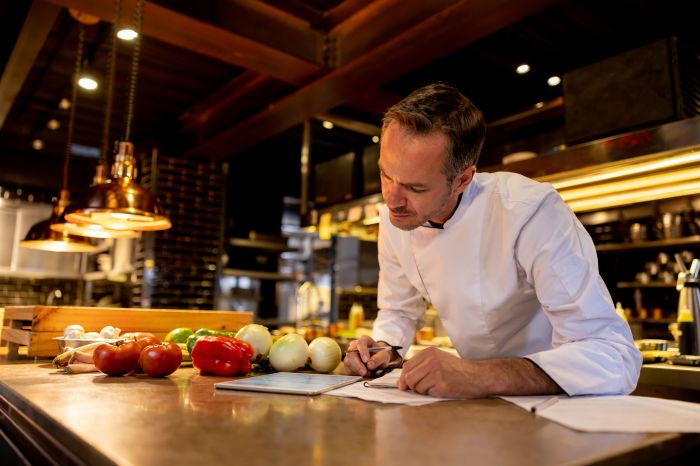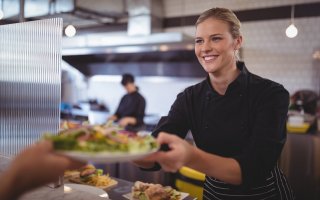5 purchasing tips to make your restaurant greener and more profitable
An ever-increasing focus on sustainability and social responsibility has forced hotels and restaurants to change how they shop and what they buy. Traditional purchasing procedures have focussed most on getting value for money. In today’s society, it is equally important to do business in a sustainable way, with the emphasis on reducing the total costs and increasing the value of our purchases in the longer term. A good purchasing system will contribute to a more efficient and economical procurement process, while offering many environmental benefits. How can a system like this save money and also provide for greener purchasing?

Digital purchasing means greater control and greener business
There are many advantages to being able to make digital purchases all in one system. When all of the information is stored electronically, you have complete control of all products at agreed prices, and you avoid a lot of paperwork. This reduces paper consumption, which in turn reduces waste from the orders you place. Digital purchases can also be made from anywhere that has internet access. Combined logistics and transport mean fewer journeys to go shopping, and everything is delivered directly to your establishment, again resulting in reduced CO2 emissions.
The Millum system is the largest purchasing system for hotels, restaurants and canteens in the Nordics, and has already provided over 90 businesses with a greener and more sustainable way of purchasing what they need.
The future is digital. Many of our customers on the purchasing side were early adopters and have been using e-commerce for many years, and they are now seeing the benefits. CEO, Millum
Bjørn Anskau
CO2 calculator allows users to calculate their own carbon footprint
If a hotel, restaurant or canteen is aiming to make greener purchases, a CO2 calculator is a necessity. With a tool like this, cooks in catering kitchens can easily calculate the footprint of the food they intend to serve, and so make conscious choices in the purchasing process in order to reduce this footprint. After seeing steadily increasing demand from customers for a tool to document the footprint of menus and individual dishes, Millum has developed a CO2 calculator with data from RISE, Klimato and/or Fremtiden i våre hender in its purchasing system.
We believe we can provide for greener business in our systems. In collaboration with our customers, we are always on the lookout for improvements that can bring us closer to green commerce. We have just released our CO2 calculator which displays the climate footprint of purchases right down to the line item and portion level. CEO, MillumBjørn Anskau
We can all reduce food waste
Knowing more about our own food waste makes it easier for us to know what and how much food we need to buy for our own catering kitchen. Recording food waste over time, from diners, buffet counters and production, will provide vital insight and help us to plan menus better, and to understand what produces less food waste in the purchasing process.
Recording and calculating food waste is less time-consuming when you have a food waste function in the same system that you use to place orders or create menus. This is one of the significant benefits from using Millum’s purchasing system. You have all you need in one place, making everything that has to be done in a catering kitchen more efficient.
A documented value chain helps you to make sustainable and economical choices
A good purchasing system makes it easier to ensure that, when you enter into contracts with new suppliers, their own supply chains have also been approved. In institutional settings, more and more buyers now want control over both the environmental and ethical aspects of their whole supply chain. The Millum purchasing system is clear about this and works with Factlines – a company that enables suppliers to document and demonstrate their social responsibility, making it easier for buyers to make more conscious and sustainable choices.
When both sides take responsibility, it is easier to make more sustainable choices
A purchasing system that supports sustainable business on the buyer and the supplier side will motivate both parties to work together towards a common goal. There is great unrealised potential in the catering sector in Norway, Sweden and Denmark, which spends upwards of NOK 80 billion a year. So it will have a big impact if we can make most of this business greener.
These are big numbers. We cannot turn most of our purchasing activity green overnight, but we also have to remember that every little helps. Millum facilitates greener purchasing by enabling our users to make informed choices when they shop through Millum, so the aim is for us to work together to move the industry in the right direction. CEO, MillumBjørn Anskau




